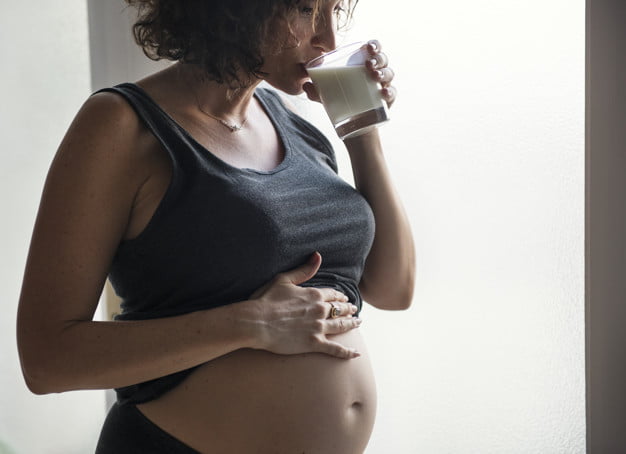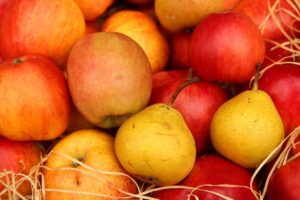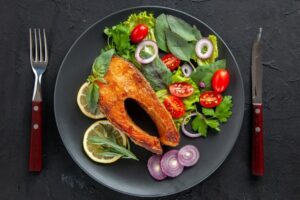Nigerian foods for pregnant women should be nutritious and easy to prepare.
They should be rich in protein, complex carbohydrates, fats, vitamins, and minerals.
While sourcing for healthy foods, it is also important to have a good knowledge of foods to avoid during pregnancy, especially in the first trimester.
This article will give you a list of foods to eat and avoid when pregnant in Nigeria.
Foods to eat when pregnant in Nigeria
These Nigerian foods are rich in essential nutrients and will ensure the optimal development and nourishment of your baby.
1. Lean meat and proteins
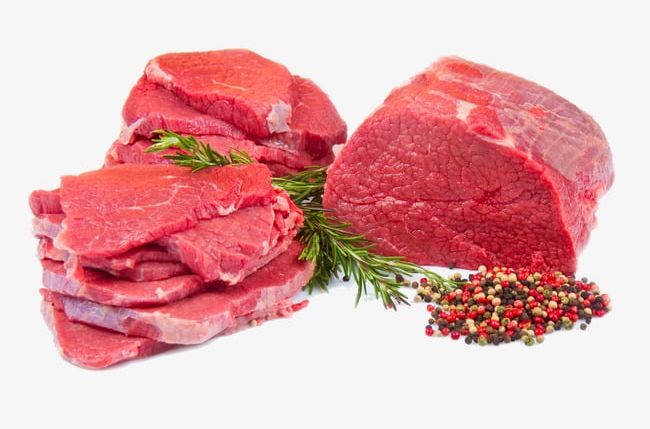
Lean proteins are excellent sources of protein, iron, B vitamins, and other minerals.
Iron is required in larger amounts during pregnancy because it is needed by red blood cells to produce hemoglobin.
And since your blood volume is increasing, you will need more iron, especially during your third trimester.
To increase absorption from iron-rich foods, combine foods rich in vitamin C like fruits, vegetables, or red pepper.
Sources of lean protein include:
- Lean beef
- Goat meat
- Chicken
- Turkey
Additionally, ensure to cook your meat properly before eating, as undercooked meat may transfer a harmful bacteria called Listeria that may cause a miscarriage.
2. Fish and seafood

Fish and seafood are packed with protein, vitamin D, and omega-3 fatty acids that are good for a baby’s development.
However, take note that most imported fishes eaten in Nigeria contain high levels of mercury – an element that is toxic to both mother and fetus.
Examples of safe fish to eat during pregnancy include:
- Salmon
- Catfish
- Shrimp (crayfish)
- Sardines
- Tilapia
3. Beans and legumes
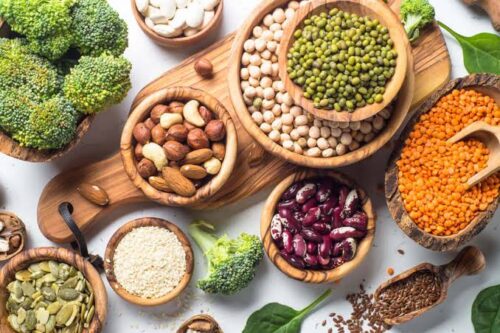
Cowpeas (black-eyed peas), Bambara nut (okpa), African yam bean, and pigeon pea are examples of legumes eaten in Nigeria.
They are packed with lots of fiber, protein, iron, calcium, and folate – all of which your body requires during pregnancy.
Beans are also rich in folate (folic acid), one of the most essential B vitamins your body needs during pregnancy – especially in the first trimester.
Eating beans along with supplements will provide you with 600 micrograms (mcg) of folate – the daily requirement of folate needed in the body [1]
Additionally, legumes are good sources of dietary fiber. Fiber promotes a feeling of satiety and helps prevent constipation.
You can enjoy your beans and legumes as:
- Akara with akamu or ogi
- Moi-moi with akamu or chilled garri.
- Porridge beans with plantain or yam
- Beans with rice
- Bambara nut pudding (Okpa)
4. Dairy products
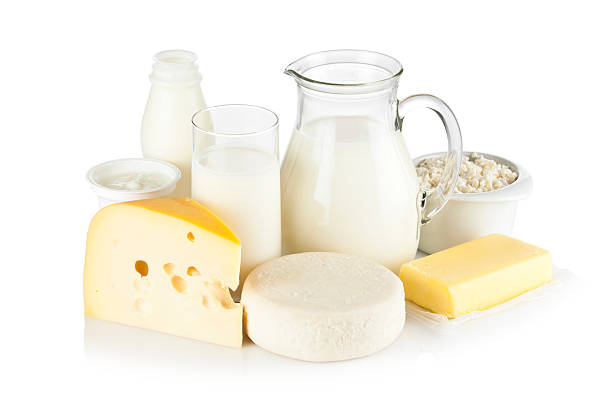
Products like milk, yogurt, and cheese provide you with protein and calcium to meet the needs of your little one.
Dairy, especially Greek yogurt is the best source of dietary calcium. They also provide you with high amounts of phosphorus, B vitamins, magnesium, and zinc.
Furthermore, Greek yogurt is rich in good probiotic bacteria, that helps protect digestive health and treat diarrhea in pregnancy.
However, do not eat unpasteurized milk products as they may contain harmful microorganisms.
5. Eggs

Eggs are powerful superfoods. They are rich in protein and contain all the essential amino acids needed in the body.
They are a great source of choline, a vital nutrient that prevents malformations and helps a baby’s brain development.
Eggs are incredibly versatile. You can add scrambled or hard-boiled eggs to your breakfast. They are low in calories but very filling.
6. Whole grains

Whole grains like brown rice, oats, quinoa, millet, sorghum, and fonio are great in pregnancy.
They are rich sources of complex carbohydrates, protein, fiber, B-vitamins, magnesium, and calcium.
Their high fiber content promotes a feeling of satiety and helps prevent overeating and constipation.
You should eat more whole grains in your third trimester, as it helps prevent digestive issues that may arise due to the pressure the baby places on your digestive system.
7. Cassava (fufu, garri)
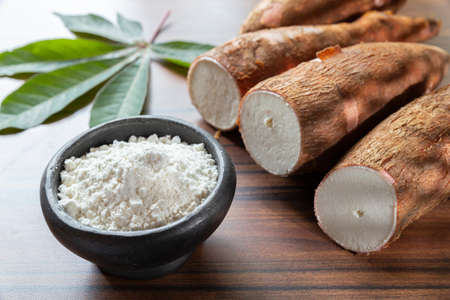
Cassava is a stable favorite in Nigeria. It is a good source of fiber and antioxidants.
Its high fiber content is particularly useful in pregnancy – as it helps prevent constipation and diarrhea.
Fermented garri and fufu are also great sources of good probiotic bacteria that may help maintain a healthy digestive tract.
However, since cassava is low in protein, always combine your garri or fufu with good protein sources, to ensure a balanced diet.
8. Sweet potato

Sweet potatoes are incredibly healthy and delicious. They’re rich in beta-carotene, a plant compound that gets converted to vitamin A in the body.
Vitamin A from plant sources is essential for a baby’s development and growth.
However, take care to avoid excessive consumption of vitamin A from animal sources, as it can cause toxicity. [2]
Sweet potatoes are also rich in dietary fiber. Their high fiber content keeps you full longer, reduces blood sugar spikes, and improves digestive health.
9. Vegetable soups
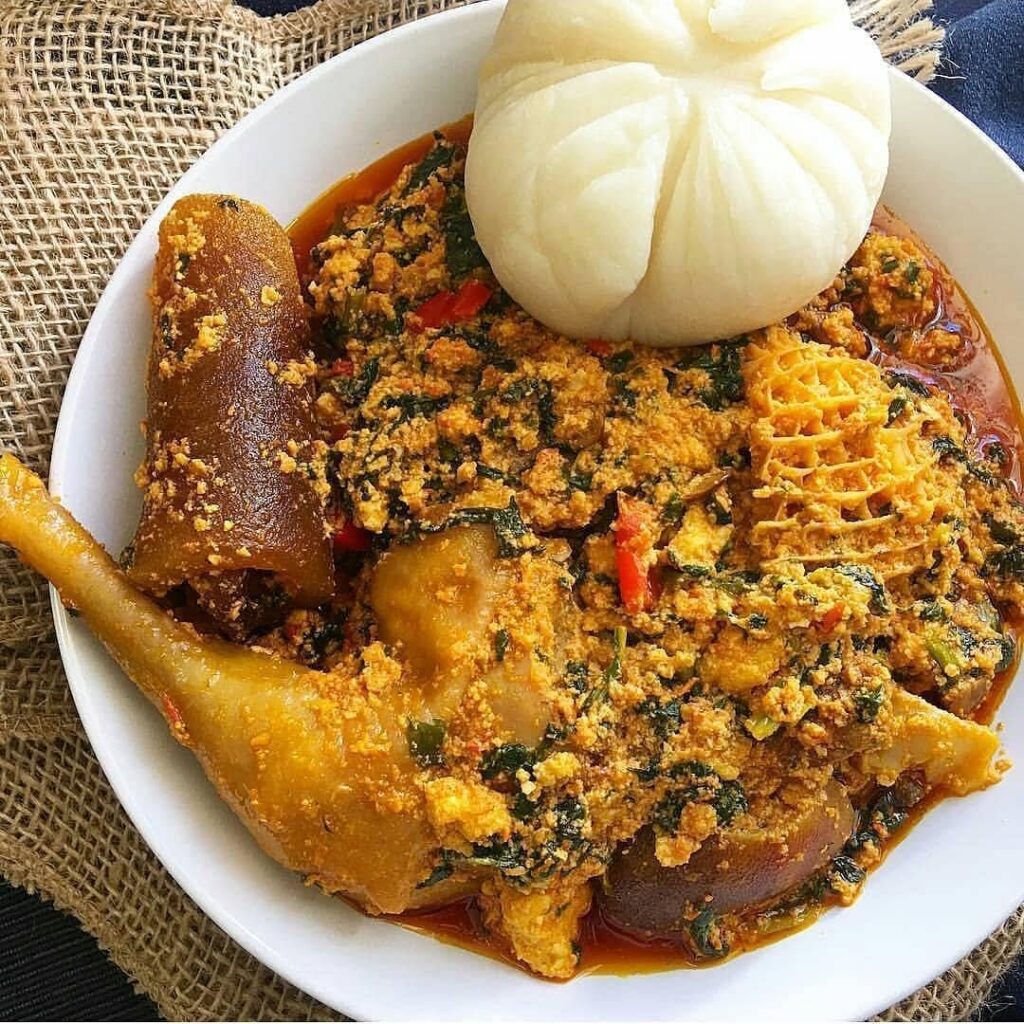
When making your soups, make sure to add lots of green leafy vegetables.
Leafy greens like spinach, bitter leaf, pumpkin leaves, jute (ewedu), okra, cassava leaves, scent leaf, curry leaves, etc, have been found to contain lots of fiber, vitamins, and minerals.
They’re rich in folate and have been linked to a reduced risk of low birth weight. [3]
Adding vegetables to Nigerian foods enriches them and increases their nutritional value.
Examples of soups to enjoy during pregnancy include:
- Ogbonno (draw) soup
- Egusi (oil melon) soup
- Oha soup
- Bitter leaf soup
- Ewedu soup
- Groundnut soup
- Afang soup
- Okra soup
- Banga soup
- Vegetable soup
You can combine your favorite soup with fufu, eba, or pounded yam but avoid overly spicy soups.
10. Banana
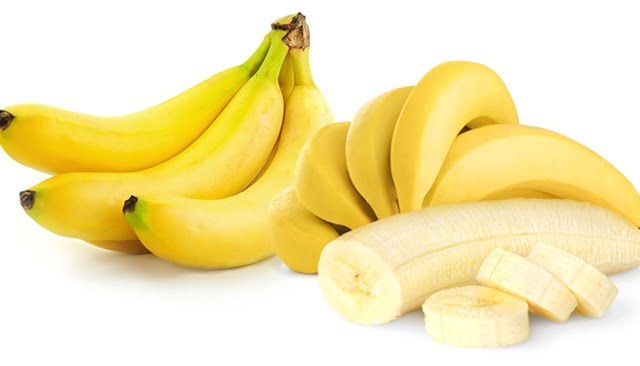
Bananas are incredibly healthy fruits. They are rich in potassium and give you a burst of energy when you are fatigued.
Their rich potassium content helps stabilize blood pressure during pregnancy and maintains body electrolytes.
You can add bananas to your smoothies or slice them into your bowl of oats.
11. Avocado
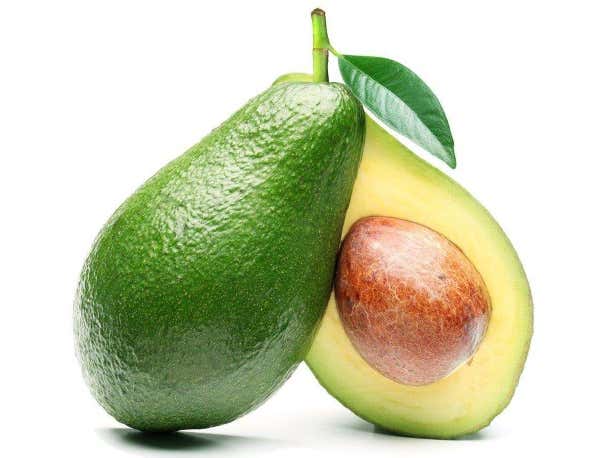
This creamy delicious fruit is incredibly packed with essential nutrients. They’re rich in fiber, vitamins C, K, and E, potassium, and magnesium.
Avocados are rich in monosaturated fatty acids, a type of fatty acids that may help build the skin, brain, and tissues of your little one.
Also, their folate content may help prevent neural tube defects and malformations like spina bifida.
Avocados contain more potassium than bananas [4]. And may help relieve leg cramps, a side effect of pregnancy in some women.
You can enjoy it as a spread for your whole grain bread, in smoothies, or slice them neatly into salads.
12. Garden eggs (African eggplant)
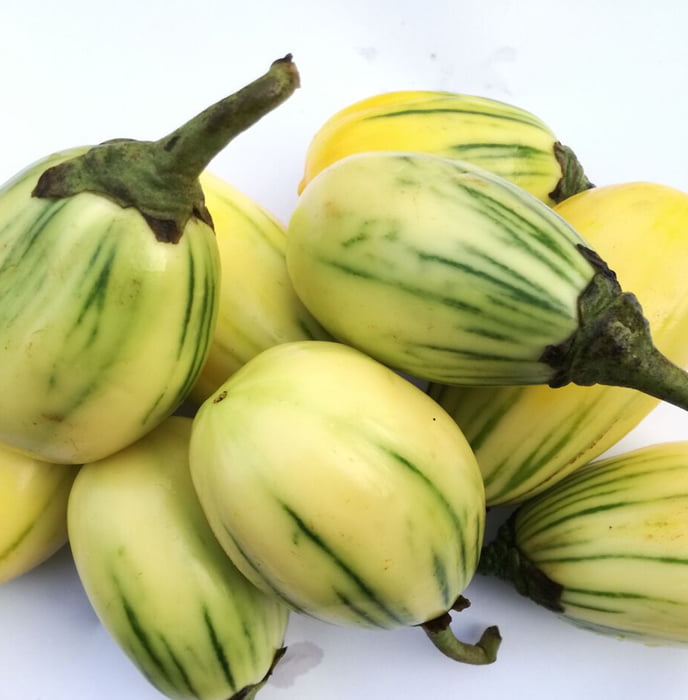
Garden eggs are healthy Nigerian foods for pregnant women. It is rich in fiber, vitamin C, B vitamins, iron, and magnesium.
Due to its high fiber content, eating garden eggs will help prevent constipation in pregnancy and help maintain your digestive system.
Its high vitamin C and iron content also help to strengthen the immune system and fight off diseases.
Foods to avoid when pregnant in Nigeria

- Raw or undercooked fish: Sushi and undercooked seafood or meat need to be avoided. There is a risk of parasitic, bacterial, or viral contamination that may harm baby and mother.
- Fish high in mercury levels: Tuna, marlin, swordfish, king mackerel, shark, and orange roughy should be avoided completely during pregnancy.
- Unwashed or raw food: To avoid toxoplasmosis, a parasitic infection transmitted from cat feces, wash fresh fruits and vegetables well before eating. As they can be contaminated with infected soil.
- Raw eggs: Cook your egg properly to 160 degrees to avoid a risk of salmonella infection. Avoid foods prepared with raw, undercooked eggs like cake batter, homemade ice cream, and some salad dressings.
- Soft cheeses and unpasteurized milk: Feta, Brie, Camembert, blue cheese, queso fresco, queso Blanco, and panela are examples of cheeses to avoid. They are prepared with unpasteurized milk – milk that hasn’t been heated to destroy harmful bacteria, like Listeria or E.coli, Always check your labels before buying to make sure it’s pasteurized.
- Organ meat (Liver): High levels of vitamin A are dangerous and toxic to a developing baby. Since the liver is rich in vitamin A, avoid excessive consumption of the liver.
- High sugar and fat foods: Soft drinks, cakes, biscuits, cookies, chips, and candy should be kept to a minimum. Many of these foods are high in sugar and fat but have little nutritional content. They may undermine a pregnant woman’s efforts at maintaining a healthy weight.
- Caffeine: 200 mg of caffeine daily is the maximum amount that is safe for pregnant women. The baby can’t metabolize the same amount of caffeine as you, so it’s best to avoid large amounts. Check the caffeine in your soft drinks, coffee, tea, and chocolate to make sure you’re keeping it under 200mg.
Should pregnant women avoid alcohol completely?
Your fetus’s liver can not metabolize alcohol, so it’s best to avoid alcohol in pregnancy. Especially in the first trimester.
Heavy drinking may increase the risk of the baby developing fetal alcohol syndrome (FAS).
Although some public health guidelines recommend that mothers may drink very small amounts per week. Some still advise ditching alcohol completely.
Do spicy foods cause miscarriage in early pregnancy?
Mildly spiced Nigerian foods are delicious to eat and do not cause miscarriage in early pregnancy.
However, avoid overly spiced foods as they may cause indigestion, nausea, vomiting, and heartburn which most non-pregnant people are still prone to.
Also avoid excessive use of spices like alligator pepper, negro pepper (uda), rosemary, thyme, ginger, garlic, uziza, and red chili.
The bottom line
Your growing baby will gain lots of nutrients from this nutrient-dense list of lean proteins, beans, whole grains, complex carbohydrates, fruits and veggies, and healthy fats.
This list should be a nutrition guide towards a healthy and well-nourished pregnancy in Nigeria.
Keep your health practitioner informed of your eating patterns and let them guide you with any necessary supplements.
- Folate: Fact sheet for health professionals. (2020).
ods.od.nih.gov/factsheets/Folate-HealthProfessional - Maia HB, et al. (2019). Vitamin A and pregnancy: A narrative review. DOI:
10.3390/nu11030681Dreher ML, et al. (2013). - Hass avocado composition and potential health effects. DOI:
10.1080/10408398.2011.556759 - Coletta JM, et al. (2010). Omega-3 fatty acids and pregnancy.
pubmed.ncbi.nlm.nih.gov/21364848 - Fekete K, et al. (2012). Effect of folate intake on health outcomes in pregnancy: a systematic review and meta-analysis on birth weight, placental weight, and length of gestation. DOI:
10.1186/1475-2891-11-75
Get new free and exclusive health tips delivered straight to your inbox!
